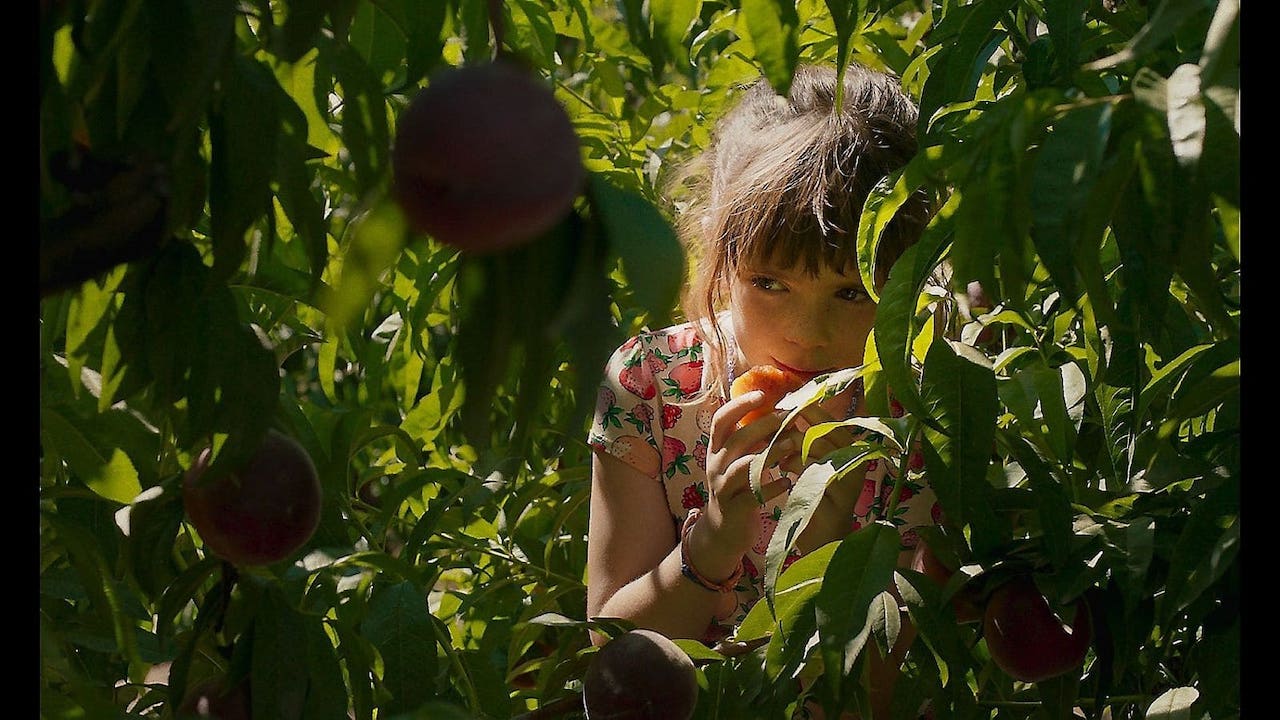Spanish drama Alcarràs is a poetic portrait of little people vs. big changes

Battered by the winds of change, a family of peach farmers cling to their traditions in Carla Simón’s intimate drama Alcarràs. Travis Johnson praises the film’s naturalistic style and “remarkable” performances.
With her first film, 2017’s evocative Summer ’93, Spanish director Carla Simón told the story of a six-year-old girl sent to live with her uncle and his family in the Catalan countryside after her parents die of AIDS. Incredibly and poignantly, the film is based on her own experiences as a child.
Now, with the much-lauded Alcarràs, named for the town where it is set, she returns to the same locale, widening her narrative scope to encompass a family of peach farmers confronting an uncertain future in the face of rapid and seemingly irresistible change. Utilising a loose, improvisational camera style, natural light, and employing a cast of non-professional actors, Simón has created a film that splits the difference between poetry and documentary.
Only gradually does the plot reveal itself; instead, we spend time with dour farmer Quimet Solé (Jordi Pujol Dolcet), his wife Dolors (Anna Otín), and son Roger (Albert Bosch), who together run the farm with a few hired hands for extra muscle. Oldest daughter Mariona (Xénia Roset) is excited to dance at the upcoming village talent show, while youngest kid Iris (Ainet Jounou) roams the farmstead with her twin cousins Pau (Isaac Rovira) and Pere (Joel Rovira). It’s a tough, precarious life, only ever one bad crop or weather event away from disaster, but it’s a lifestyle the family has sustained for generations. But crashing wholesale prices are making it more difficult than ever, and many neighbouring farms are being parcelled up and sold off.
Quimet has so far managed to keep that threat at bay, but things come to a head when we learn that the Solés don’t legally own the land they live upon—it was gifted to them in a handshake deal by the landowner in gratitude for sheltering his family during the bloody Spanish Civil War. But the old lord has passed on and his heir, Pinyol (Jacob Diarte), plans to rip out the orchards and install a solar farm. Quimet is given an ultimatum: upskill to become a solar technician or clear out.
It feels like a small-scale drama and Simón smartly frames the action intimately, but Alcarràs is a portrait of small people at the mercy of vast forces they can’t deny and often cannot fully understand, carelessly tossed aside in the pursuit of profit. But it’s interesting that Simón has chosen a solar farm to be the symbol of Quimet and company’s obsolescence, rather than, say, fracking or some other ostensibly “evil” enterprise. The message seems to be that all progress, even the most benign, is disruptive, and there’ll always be someone who finds themselves worse off in the aftermath.

As the local farmers plan protest actions to a last ditch attempt to save their way of life, it’s easy to draw comparisons with other labour movement dramas like John Sayles’ depression era Matewan. But Simón eschews obvious dramatics and theatrics even more than the studied Sayles, her conflicts playing out slowly and subtly. She draws remarkable performances from her cast, who all hail from the rustic province of Lleida, capturing a naturalism that even the staunchest method acting maven would struggle to achieve. The result is the sense that we’re not merely watching a drama—we have a window into the lived experience of these people.
Alcarràs handily scooped up the Golden Bear at the 72nd Berlinale, and was Spain’s submission for the Best International Feature Film at the upcoming Academy Awards, although it failed to win a place on the short list. Nonetheless, this is an uncommonly perceptive social drama that uses a small story to ask big questions.



















